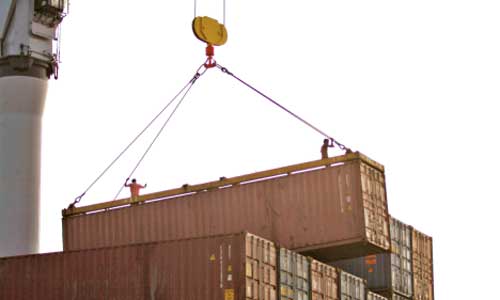The country’s trade deficit increased by 117.87 per cent to $5.31 billion in the first half of the current financial year 2014-15 compared with that of $2.43 billion during the same period of the FY14 due to a massive drop in export earnings against a higher import payment.
Officials of Bangladesh Bank and experts said falling export of readymade garment, the main export product of the country, dented the overall earnings in July-December of the FY15 while import of capital machinery continued to rise significantly during the period.
The trade deficit had posted a negative growth of 33.63 per cent in July-December of the FY14, according to the BB data released on Thursday.
The trade deficit was $3.67 billion in the first half of the FY13.
The export earnings registered a 1.54-per cent growth in the first six months of the FY15 compared with that of 17.15 per cent growth in the same period of the FY14.
The export earnings stood at $14.73 billion in July-December of the FY15 while it was $14.51 billion during the same period of the FY14.
The imports registered an 18.28-per cent growth in the first six months of the FY15 compared with that of 0.11 per cent negative growth in the corresponding period of the FY14.
The import payment stood at $20.04 billion in July-December of the FY15 and it was $16.95 billion in the same period of the FY14.
Former interim government’s finance adviser AB Mirza Azizul Islam told New Age on Thursday that the decreased growth in export earnings had put an adverse impact on the country’s trade account.
The lower export growth in the recent period has already created a worrisome situation for the country’s business sector, he said.
The higher import growth in the six months was apparently good for the industrial sector, but the trend also raised suspicion due to a lower private sector credit growth in the recent months, Mirza Aziz said.
He said, ‘The import growth of capital machinery was much higher than that of industrial raw materials, but the businesspeople took little initiative to expand their business in the first half of the FY15 due to political uncertainty.’
He said the importers might now be making over-invoicing to launder money abroad as the recent higher import growth had not put any major positive impact on the industrial sector.
Centre for Policy Dialogue executive director Mustafizur Rahman earlier told New Age that imports of some items of capital machinery increased significantly in the last few months that rose suspicion that money laundering might have occurred behind such activities, Mustafiz said.
He explained that industrial term loans had not increased much in the period meaning that the industrial units had not been expanded in line with the import of high volume of the capital machinery.
The BB and the National Board of Revenue should take initiatives to detect the over-invoicing through the import process, said the economist.
Mustafiz said, ‘The higher trade deficit will not put any adverse impact on the macroeconomic situation if the exports pick up and the imported capital machinery are utilised accurately.’
The BB data showed that the current account balance registered a deficit amount of $1.42 billion in the first six months of the FY15 against a surplus amount of $1.44 billion during the same period a financial year ago.
Mirza Aziz said the large trade gap widened the current account balance in the first six months of this financial year.
The net foreign direct investment increased by 5.72 per cent to $702 million in the first six months of the FY15 from that of $664 million in the same period of the FY14, the BB data showed.
The country’s overall balance decreased by 81.24 per cent to $1.44 billion in the first six months of the FY15 against $2.61 billion during the same period of the FY14 due to its week position in the current account balance.
Source: New Age


